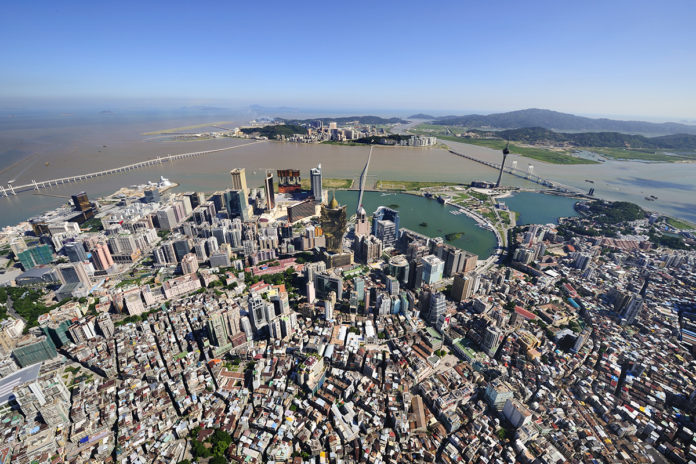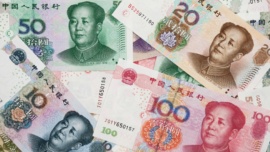Jackson Chang has led the Macau Trade and Investment Promotion Institute since February this year. His job is to convince investors there is more to the city than just gaming – no easy task Economic diversification has topped Macau’s political agenda for some time now, but there have only been a few successes to celebrate. Although the new president of the Macau Trade and Investment Promotion Institute (IPIM), Jackson Chang admits gaming will still rule in the near future, he tells Macau Business he hopes to turn the tables. The MICE industry is one of the keys with which Chang hopes to unlock the diversification door. But the sector still relies heavily on government subsidies – around half of the MICE events held in Macau have some kind of official support – according to Chief Executive Chui Sai On. “In the beginning [of any industry], the government needs to give it a lot of support”, admits Chang, explaining “it takes time” to achieve a maturation point. Less clear is the strategy to promote economic diversification through cultural and creative industries. IPIM’s president notes Chui’s team is pushing towards this goal, but doesn’t go into details on how that can be achieved. Let’s talk about business For now, one of the IPIM president’s priorities for promoting investment in Macau, is to get closer to the local business community. “There are a lot of business associations that seem to not know much about IPIM,” he admits. That is why Chang wants to boost promotion about the services the institute offers, especially among local Small and Medium Enterprises (SMEs). “In the future, we will try to provide a tailor-made service to SMEs,” he adds. “What the local companies really want is business opportunities,” Chang explains. Business matching is therefore an area in which IPIM will focus more attention. Local SMEs are not just relying on IPIM. Some companies are already eyeing the development of Hengqin Island – about one third of the more than 100 project proposals received by Zhuhai officials until February came from Macau. IPIM’s president applauds the move, but suggests local SMEs should partner among themselves or with mainland companies. Size matters for Zhuhai officials and most of Macau’s projects are small, including restaurants, although there are also proposals for factories, namely from the pharmaceutical industry, according to Chang. Taiwan dreams IPIM’s attention will continue to be focused on Macau’s traditional partners – Portuguese speaking countries, Europe and the United States – but Asian markets, namely Taiwan are now on the new president’s map. “Starting last year, we began to have more contact with Taiwan,” says Chang. In November 2009, a cooperation agreement was signed between IPIM and Taiwan External Trade Development Council (TAITRA) and, in March this year, the institute organised a local business delegation to attend the 11th Taipei International Chain & Franchise Exhibition – Spring Show. Taiwan will also have a pavilion of its own in the next Macau International Trade and Investment Fair – from September 21-24, 2010 – for the third time since 2008. The mainland is also on IPIM’s radar. According to Chang, a framework agreement on Macau-Guangdong cooperation is due to be inked very soon between both governments, similar to the one signed last month between Hong Kong and Guangdong. For now, Chang’s calendar is full. This year alone, IPIM has more than 50 activities listed in its schedule, from investment and trade fairs to promotion activities abroad. However, only time will tell if the diversification goal will be fulfilled by the institute’s new president. Residency on hold There is still no news regarding a potential resumption of the residency scheme for property purchases, the president of Macau Trade and Investment Promotion Institute (IPIM), Jackson Chang tells Macau Business. The government will study the issue, Chang says, stressing that a potential resumption is mainly a political decision. Earlier this year, Chief Executive Fernando Chui Sai On considered the residency scheme for property purchases “outdated.” This policy, launched in the late 1990’s, allowed more than 50,000 property investors to obtain a Macau ID. Chui added that the government is to study an overall makeover on the population and immigration policies in order to attract major investment projects and talent lacking locally. The residency scheme for property purchases has been suspended since April 2007. There were over 4,000 applications lodged before the closing date of the policy, which are still being processed. Although the temporary residency applications for fixed property are suspended, business investors still have a right to a Macau ID card, as do qualified professionals from outside Macau. In 2009, a total of 549 applications for temporary residency for managerial personnel, technical and professional qualification holders were approved. IPIM also received 31 applications related to major investments, an increase of 11 compared to 2008, and approved a total of 17. Top five questions Jackson Chang certainly knows his way around the Macau Trade and Investment Promotion Institute (IPIM). He has been a member of the IPIM’s executive board since 2004 and was appointed president in February, replacing Lee Peng Hong, who was surprisingly sacked earlier this year. Chang has worked at IPIM since 1994. With a degree in Economics and a Master’s in Business Administration, both obtained in Canada, he entered the public administration in 1989, starting at the Economics Service Bureau (DSE), where he eventually became the substitute head of sector for Business Information of Export Promotion, before heading to IPIM. Such a background makes it clear for him what the top five concerns of foreign investors are when eyeing Macau: knowing the cost of investing in the territory compared with surrounding regions; understanding the local tax system; having an overview of the educational system; knowing the main labour issues; and getting an update on the communications system, he says. For Chang, successful foreign entrepreneurs must also be able to understand that Macau’s attractiveness goes beyond its local market. The territory is visited annually by more than 20 million people and can act as a gateway to other regions, he stresses.
—
























